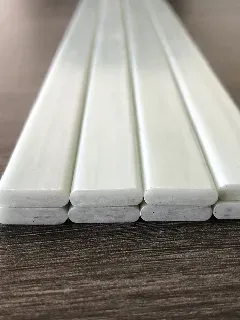loading...
- No. 9, Xingyuan South Street, Dongwaihuan Road, Zaoqiang County, Hengshui, Hebei, China
- admin@zjcomposites.com
- +86 15097380338
- Welcome to visit our website!
fiberglass storage tanks
The Benefits and Applications of Fiberglass Storage Tanks
Fiberglass storage tanks have become an increasingly popular choice for a variety of industries due to their unique properties and benefits. Constructed using reinforced fiberglass, these tanks offer several advantages over traditional materials such as steel and plastic, making them ideal for storing a wide range of liquids, including chemicals, water, and fuels. In this article, we will explore the benefits and applications of fiberglass storage tanks, highlighting why they are an excellent investment for businesses looking to enhance their storage solutions.
Durability and Longevity
One of the most significant advantages of fiberglass storage tanks is their durability. Unlike metal tanks, which are prone to rust and corrosion, fiberglass tanks can withstand harsh environmental conditions. The resin used in fiberglass construction is resistant to a wide variety of chemicals, ensuring that the tank remains intact even when storing corrosive substances. This durability translates to a longer lifespan for the tanks, reducing the need for frequent replacements and maintenance, ultimately leading to cost savings for businesses.
Lightweight and Easy to Install
Fiberglass tanks are much lighter than their metal counterparts. This reduced weight makes transportation and installation easier and more cost-effective. Unlike concrete tanks, which are inherently heavy and require specialized equipment for moving, fiberglass tanks can be transported using standard vehicles and can often be placed without the need for heavy machinery. Their lightweight nature allows for easier site selection and installation, making them an excellent choice for remote or difficult-to-access locations.
Versatility in Applications
fiberglass storage tanks

Fiberglass storage tanks are highly versatile and can be used in various applications. They are commonly employed in industries such as agriculture for storing fertilizers, in the petroleum industry for storing fuels and oils, and in the water treatment sector for storing potable water and chemicals. Their ability to store both hazardous and non-hazardous substances makes them an ideal option for a multitude of businesses, regardless of the sector. Additionally, fiberglass tanks can be manufactured in various sizes and shapes, catering to specific storage needs.
Environmentally Friendly
In recent years, the importance of environmentally friendly solutions has gained traction. Fiberglass storage tanks are an eco-friendly option as they can be manufactured using recycled materials and are fully recyclable themselves. Furthermore, their resistance to corrosion and leaks minimizes the risk of environmental contamination, ensuring that the surrounding ecosystem remains protected. By choosing fiberglass tanks, companies can demonstrate their commitment to sustainability and environmental responsibility.
Cost-Effectiveness
While the initial cost of fiberglass storage tanks may be higher than traditional metal tanks, the long-term savings they offer often outweigh the initial expenditure. The durability and low maintenance requirements mean reduced lifetime costs, making fiberglass tanks a smart investment. Additionally, their lightweight nature can lead to lower shipping costs and reduced labor costs during installation.
Conclusion
In summary, fiberglass storage tanks present a compelling solution for various storage needs due to their durability, lightweight nature, versatility, environmental benefits, and cost-effectiveness. As industries continue to evolve, the demand for reliable and efficient storage solutions will only grow. Opting for fiberglass tanks not only meets these needs but also aligns with the broader push towards more sustainable practices in business. As companies seek modern solutions that facilitate better storage and management of liquids, embracing fiberglass technology will undoubtedly play a pivotal role in achieving success and sustainability in the long run.
-
The Rise of FRP Profiles: Strong, Lightweight, and Built to LastNewsJul.14,2025
-
SMC Panel Tanks: A Modern Water Storage Solution for All EnvironmentsNewsJul.14,2025
-
GRP Grating: A Modern Solution for Safe and Durable Access SystemsNewsJul.14,2025
-
Galvanized Steel Water Tanks: Durable, Reliable, and Ready for UseNewsJul.14,2025
-
FRP Mini Mesh Grating: The Safer, Smarter Flooring SolutionNewsJul.14,2025
-
Exploring FRP Vessels: Durable Solutions for Modern Fluid HandlingNewsJul.14,2025
-
GRP Structures: The Future of Lightweight, High-Performance EngineeringNewsJun.20,2025
